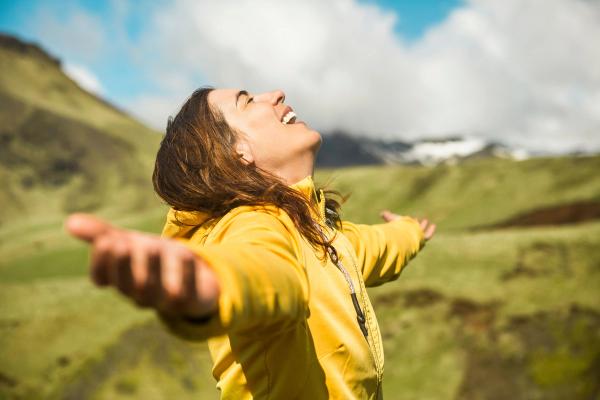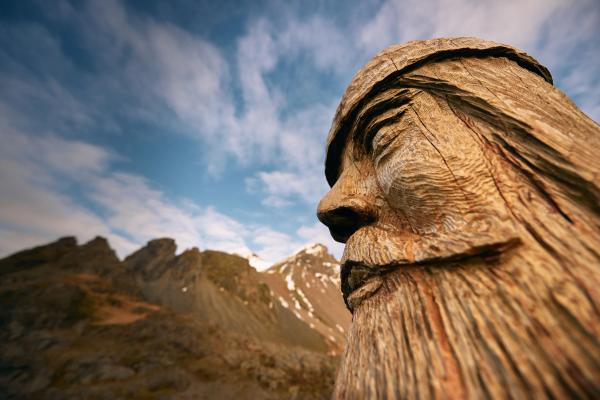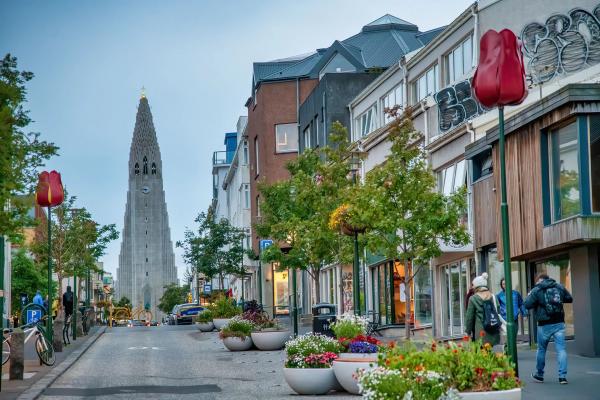
Security and Serenity: Iceland's Remarkable Crime Rate
Iceland is a country known for its cascading waterfalls and breathtaking landscapes. But, did you also know it is one of the safest countries in the world? A perfect dynamic duo for all adventurers and especially solo travelers. We are going to go over what makes this gorgeous country one of the safest out there. From its low crime rates to its affordable healthcare system, Iceland truly is a peaceful and amazing country.
Why is Iceland so Safe?
Iceland is incredibly safe mainly because of its strong social structure and policies. The country prioritizes equality, meaning there’s less income disparity, which reduces economic-driven crime. Communities are tight-knit, and a solid welfare system provides access to healthcare and education, helping people feel supported. Iceland’s police, trusted by over 95% of the population (according to a 2020 survey), focus on de-escalation and don’t carry firearms, which leads to a more peaceful society.
Low corruption also plays a big role. A 2018 University of Iceland study linked high social equality and low corruption levels to the overall feeling of safety. People trust the government, and transparent institutions make everyone feel involved and valued. Additionally, strict alcohol regulations, like state-run Vínbúðin stores, help minimize alcohol-related issues.
This blend of social equality, trust in law enforcement, community focus, and transparency explains why Iceland remains one of the safest places globally.
The 2024 Global Peace Index ranked Iceland as the most peaceful country for the 16th year in a row.
Global Peace Index
How is the data collected for this rare award? Well, there are a few different components. These include earning potential, quality of life, education, and healthcare. The Global Peace Index plays a huge part in which countries make it to this list. It is the world's leading measure of peacefulness.
According to their 2022 report, Peacefulness declined to the lowest level in 15 years. This was in result of post-Covid economic uncertainty and the devastating Ukraine conflict. Some other counties higher up on the list are New Zealand, Ireland, Denmark, and Austria. Luckily, even with these unfortunate events, Iceland has stayed on the top of the Global Peace Index List.
But how?
Low Crime Rate
One of the most important factors when assessing safety is the crime rate in the country. Iceland's current population in 2024 is 393,396, and this number plays a big part in how crime rates, or crime indexes, are calculated.
Basically, you take the number of crimes reported to law enforcement agencies for every 100,000 people within a population.
For example, Iceland's crime index in mid-2024 (the last available data) was 25.4, which is low. The United States is currently at 49.2, while Brazil is at 65.1.

The murder rate is extremely low in Iceland too. Homicides are rare and also a big deal if or when they do happen. There was a murder in 2019 of a 20-year-old girl, Birna Brjánsdóttir, who went missing after leaving a nightclub in Reykjavik. The very sad news cascaded across the country, and it was a huge deal for the people of Iceland.
Over 800 volunteers gathered from all over to help find her. Her body was unfortunately found in the harbor. The country came together for her funeral, a devastating time. In contrast, there were 19,600 people murdered in 2021 in the United States alone. When a murder happens in America, it almost goes unnoticed due to how common it is. They rarely make the news unless it is a high-profile case or a unique situation. This a sad but true fact of how the world can be in other countries. However, Iceland generally has the lowest homicide rate in Europe. This does not include microstates.
So what is the most common crime in Iceland?
Traffic offenses! Honestly, we can thank the tourists for this one. Speeding and accidents on the road are the most common tickets dished out by Icelandic Police Officers.
The general speed limit is about 15-30 MPH in busier areas and 55 MPH on other roads. Be sure to pay attention to the speed limit signs. Tickets in Iceland are expensive.
An average fine is normally between $195 and $460. It just goes up from there. This is probably not the souvenir you want to take home during your Iceland adventure. Instead of speeding, try passing the time with a car game.
The Culture
Believe it or not, culture plays a huge part in crime rates and safety in a country. Think of it as the outcome of good morals. If the people of Iceland are happy and agree that violence is mostly unnecessary, that will reflect in most of the country.
Icelanders believe in equal rights, which provides an utter sense of happiness. Treating everyone equally is a huge deal here. This means someone wealthy will have most of the same opportunities as someone poor. There is also a law in place that women can’t be paid less than men for the same work. This is called the Equal Wage Management Standard and it was introduced in 2018.
Equality exists for same-sex marriage as well. It is legal in Iceland for same-sex couples to apply for adoption. Reykjavik Pride is a huge festival held annually to support the LGBTQ community in Iceland. It is actually one of the only pride festivals in the world where no one has ever protested. Religion rights are also put in place, encouraging everyone to practice their religion of choice.
Icelanders follow Viking tradition in most of their culture. This is also reflected in dinner spreads or the serving of traditional Icelandic foods. The Vikings ended up being peaceful towards the end of their era. While some came to fight, others came peacefully, to simply settle. The Icelanders like to pick up where the Vikings left off. Providing and encouraging peacefulness to each other and visitors to the country. Therefore resulting in a happier place to live.

Healthcare System
Let’s discuss the healthcare system in Iceland. While health care might not be the first thing to pop into your mind when it comes to safety, it does play a big part. This is due to the well-being of the people living in a country.
Iceland has the world's second-best Healthcare Access and Quality Index according to recent reports. What is that exactly? It is an index scale rated from 0, which is the worst, to 100, which is the best. It is then based on amenable mortality. The HAQ index uses age-standardized, risk-standardized mortality rates for thirty-two causes of death that timely and effective health care could potentially prevent.
Icelanders have universal access to health care, which is also a part of their law. This means the country does not have private health insurance. So the locals of the island depend on the National Health Service. Icelanders will visit state-run hospitals and primary health care centers as normal. But, instead of leaving with a hefty bill, they will have a minimal charge.
You can even see a specialist if needed at a smaller cost average. Normally about 75% of the fees are paid by the government. This is a huge deal compared to other countries. Most people in America, for example, will avoid going to a hospital due to the high bills.
A hospital visit can range anywhere from $1,000 to $20,000, depending on tests and what health insurance you have. This skyrockets the stress levels of Americans and brings up the common question. “Is it worth going to the hospital? Or, “Should I just wait it out.”. Iceland does not have to worry about this type of stress, which gives less anxiety to any sick Icelanders that need care.
This also applies to seeing a specialist. In other countries, specialists are very expensive. One visit alone can be over $500. Sometimes, insurance doesn’t even cover them. So anyone with rare diseases is put in a terrible situation. “Do I spend my rent money on seeing this one doctor?” Or “Do I go to a cheaper doctor who does not specialize in my illness?”. No one should have to make that decision.
The fact that the government in Iceland helps with an average of 75% of those costs is huge. So it is no wonder why the country is a front-runner on the Global Peace Index. Nothing keeps the peace more than being healthy with low medical bills.
There is also medical and psychological treatment offered to criminals. Instead of locking up someone without any help, the country tries to help the best it can.
Iceland’s Police & Army
Iceland does it a little differently when it comes to its police and army. There are police on both land and sea in Iceland, including the State Police, the Coast Guard, and the Customs.
But what makes them unique?
The police officers in the country do not carry guns. They feel they do not need them to protect the country and time is showing that they are right. Instead, they carry a small baton or nightstick. The country is divided into 27 police districts. Every police commissioner is independently in charge of the police tasks in their district. Police commissioners in Iceland are required to have a law degree as well.
Why is it a game-changer that the police do not carry guns? Well, this removes the immediate threat from the police that some people may feel. Instead of being intimidated by them, the people of Iceland embrace them. Feeling more comfortable asking for help when needed. Guns are still popular throughout Iceland too! They are used mostly by farmers throughout the island. Luckily, there are not many crimes related to guns in Iceland at all.
If a situation ever gets out of control, the Iceland version of a SWAT team will be called in. Also known as the National Commissioner’s National Security and Special Forces Unit. They do have access to guns if needed as well as other weapons. Luckily, that is a rare occurrence as the police officers have it normally under control.

No army in Iceland.
This is mostly due to the small population of the country. It would cost a lot of money to build an army up. In addition to this, the Icelanders don't think they need one. So far, they have proven that right!
The Coast Guard is there in case of any potential invasion. They are properly armed and trained to handle any military-esque situation. There is also a military expeditionary peacekeeping force that is on standby. Iceland is part of agreements with every country that is in NATO too. This means the other countries are obligated to protect the country if something happens. This island is all about keeping the peace though. War is a last resort here, which makes Iceland even more respected.
Just because Iceland is rated one of the safest countries in the world, does not mean you should let your guard down.
Danger can happen anywhere, at any time. It is important to always be mindful. Police did say that tourism and immigration have not caused an increase in crime. However, there is a lot of tourism in Iceland and that is expected to grow over the years. Be aware of your surroundings and always have a safety plan in place.
Most importantly though, enjoy the kind Icelandic people and their majestic country. Always ask for help if you feel threatened or need it. The police are there for you, as well as most of the locals,
Disclaimer: The numbers, index statistics, and crime rates in this article are ever-changing. Keep up to date on the index websites for up-to-date information.
